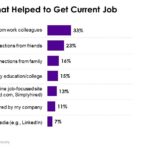
Networking is up there with sales as business terms that make some of us cringe. For many, networking is a necessary evil that drums up visions of wandering awkwardly around conference booths while trying to strike up conversation. For them, the “bad news” is that research Escalent recently conducted with WIPN supports the importance of networking in career advancement and satisfaction. The good news is that networking is actually more than just awkward conversations no one really wants to have. Networking doesn’t have to be a dirty word. Beyond WIPN’s own powerful and inspiring networking opportunities, this research uncovered a clear call to action around developing the more personal and meaningful relationships that come from mentorship and sponsorship.
Quite simply, networking wins. If there was remaining doubt then it’s dispelled by the role networking has played for women in the retirement industry. Last fall, WIPN and Escalent embarked on a first-of-its-kind assessment of the attitudes, experiences, behaviors and compensation of these women. Among them, one in three got her current job through work connections—the most common resource by far. An even stronger argument for networking’s value: seven in ten feel networking played a role in getting them to their current level of career achievement.

A key, and arguably the key, to successful networking is a mentor or sponsor relationship. If you think about your achievements big and small, they likely all come back to a person. Someone who made it happen, took a chance, was willing to listen, thought to include you, didn’t close the door. Maybe this person didn’t have the official title at the time, but this sponsor enabled a positive outcome for you.
“A mentor gives you knowledge about how to grow in your life and career—a sponsor ‘sits on the same side of the table’ with you in that growth. A sponsor has a vested interest in your success.” – GenXer
You could connect every barrier unearthed in this research—a less-than-promising career path, not knowing what you’re worth, among others—to an opportunity for more mentorship and sponsorship connection. The biggest barrier to success at work is the lack of available opportunities, which is an area where sponsors could shine… if more than 17% of women just had one. Mentors are more common, at 42%, but this still shows plenty of room for progress in this powerful type of relationship that can influence a multitude of career growth factors while helping to defend against barriers like having a lack of relationship with decision-makers.

The value of having a mentor or sponsor is recognized by many women in the retirement industry—as not having one is a top-five barrier to success. It is a particular concern among women of color, among whom almost one-quarter (24%) name this barrier. This is unsurprisingly coupled with a significantly higher proportion of women of color who feel excluded from formal and informal networks at work compared with white women—an aspect of corporate culture that should be addressed on its own but can also be alleviated by connections made through mentors and sponsors. Among those who have a mentor or sponsor, 47% believe their mentor is in a position to help them advance, while 64% believe this of their sponsor.
“A sponsor is an advocate for you and can get you involved in things, introduce you to people, help navigate your organization. But, a mentor is both an advocate and a teacher. A mentor can help you identify your goals and objectives and how to reach them. They can get involved in your projects and make recommendations. They can suggest additional training you might need. I feel like a mentor is a more in-depth role that both individuals need to commit to. A mentor doesn’t need to be a part of your organization.” – Boomer
Formalizing relationships
The “accidental” mentor or sponsor moment is a nice proof point of the benefit, but it doesn’t replace formalizing the relationship. That step unlocks full value for both parties, as many note this ends up being a mutually beneficial relationship. This research shows that some organizations are falling short. Over three in ten women say their company doesn’t provide formal opportunities to find a mentor, and this rises to about four in ten for sponsorship. However, this is fortunately an area where women can more easily continue to grow while organizations catch up. Creating connection is the foundation of Women in Pensions Network, and membership leads to relationship-building opportunities as well as a formal mentor program for those interested. Other such organizations exist to support women in different sectors.
“Nothing ventured, nothing gained. I always make sure my manager knows my expectations, my time frame, and what I’m doing to earn it. Frankly, I don’t feel this has ever been a problem for me in my career. I network and am familiar with the value I bring.” – GenXer
“I attribute a lot of my success and mindset to the female role models I’ve had in my life telling me anything was possible.” – Millennial
For employers this is an area where a smaller-scale effort has value until bigger plans can be achieved. Simply fostering the community can better enable women to forge mentor and sponsorship relationships. As the organization grows, the program can grow with it.
For a deeper look at the attitudes and behaviors of women in the retirement industry, download our joint white paper with WIPN, What’s Working at Work.









